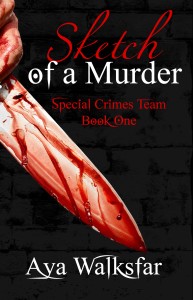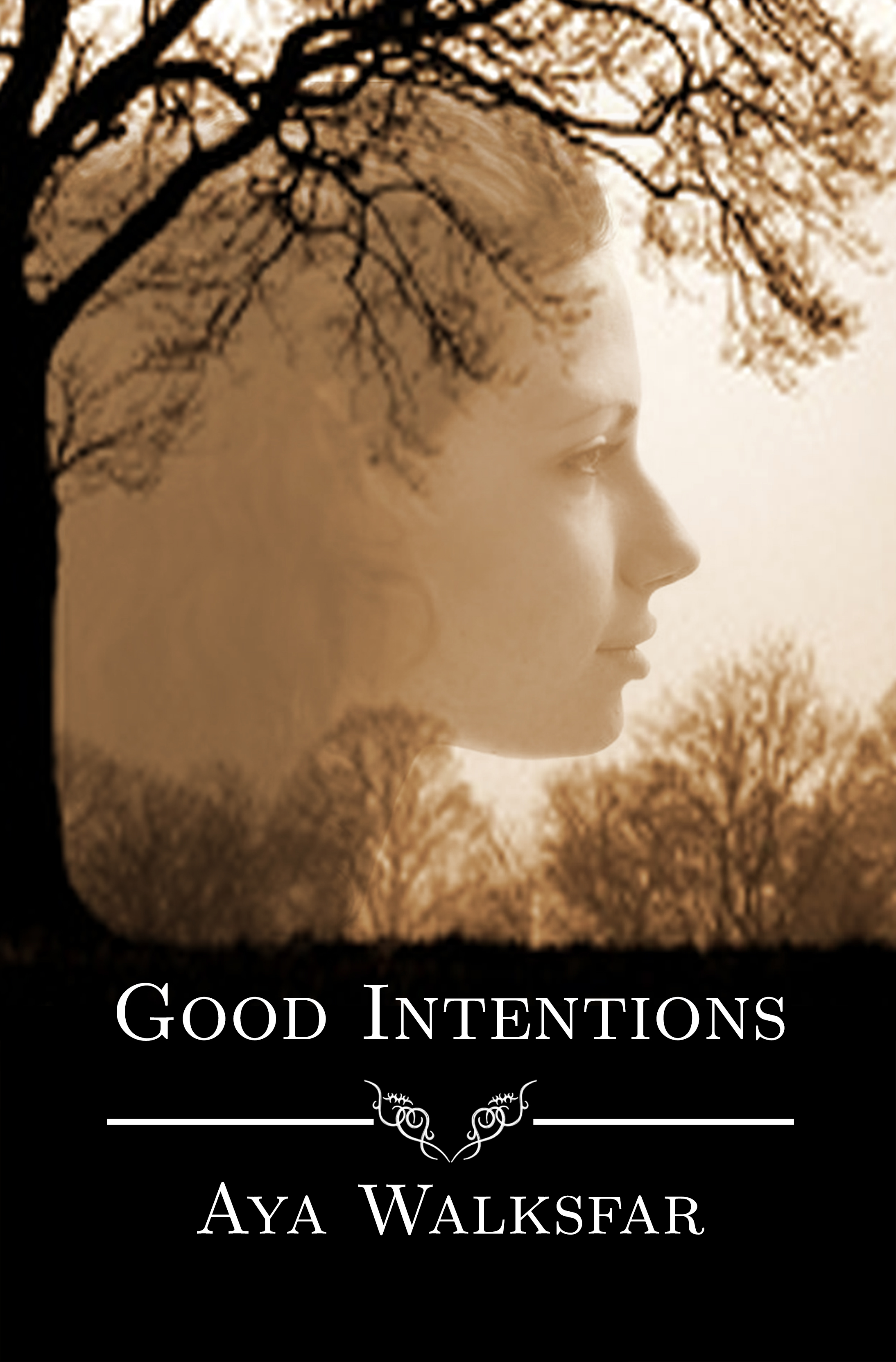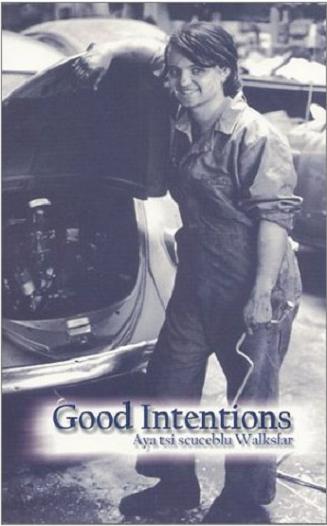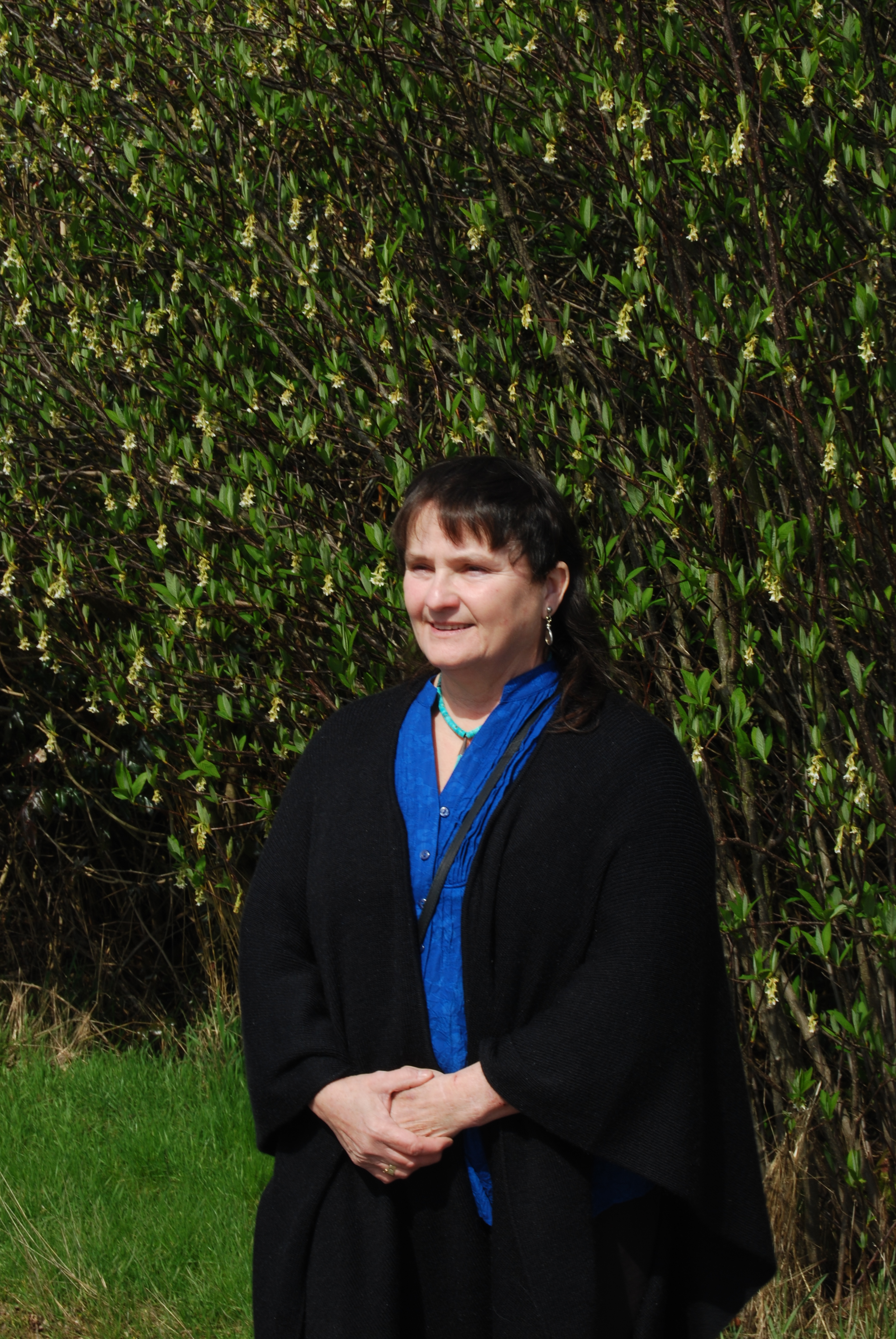Interviewer: Sergeant Slowater, thank you so much for coming to visit with us today. I am pleased to interview you, again.
Sergeant Slowater: Look, this interview wasn’t my idea. It was strongly suggested that I participate in your series about the Special Crimes Team, so here I am. As I told you before: I am not a fan of the media.
Interviewer: Yes, I believe you did make that clear the last time I spoke with you, Sergeant, but I am happy to have the opportunity to see if we might forge a bit more amicable relationship. With that in mind, I have given a great deal of thought to what I’d like to ask you. (Interviewer stops and waits for acknowledgement from Sergeant Slowater)
Sergeant Slowater: (shrugs) Whatever.
Interviewer: I understand that you lived in Mount#Vernon before moving to Seattle. How do you like Seattle?
Sergeant Slowater: (Frowns): I am not a fan of big cities. Too much noise. Too many people all crowded together.
Interviewer: (Raises an eyebrow): Why did you transfer here if you feel that way?
Sergeant Slowater: Let’s just say it was strongly advised as a wise career choice.
Interviewer: Okay. Since you don’t like big cities, can you tell me why you like smaller cities?
Sergeant Slowater: (looks at interviewer and restlessly taps fingers on chair arm) They’re the opposite of big cities. Quieter, not as crowded. Where I grew up, there was farmland all around us.
Interviewer; Tell me something else about Mount Vernon, Sergeant.
Sergeant Slowater: Like what?
Interviewer (gives a small shrug) Whatever you would like to share. Like what is your favorite time of year up there?
Sergeant Slowater: The spring. (gives a little smile) I love how the trees start leafing out, and I like going up to the tulip fields in bloom. There are rows and rows of colors: red and yellow are the most prominent, but the one I like best is the deep purple; the orange-red ones are my choice for second best.
Interviewer: That sounds lovely. You know, I’ve never gone up during the Tulip Festival. I think I might have to, now. (gives a warm smile to Sergeant Slowater) There is one thing I think Mount Vernon cannot ever top Seattle in: the best pizza. (Interviewer gives a sad shake of head)
Sergeant Slowater: (slight snort): Seattle has nothing on Mount Vernon in a pizza contest. The absolutely best pizza I have ever eaten came from a place in Old Town, called Pacioni’s.

Voted Best Pizza in Skagit County! Best Pizza in Western Washington per Sergeant Slowater!
You can buy a pizza from the list of different ones, or you can build your own. You start with a crisp, thin crust, then you pick from a list of sauces, meats, fruits, veggies and cheeses. There’s three different sauces. My favorite is marinara. Then you have eight different meats; I like Pacioni’s Italian sausage and Black Forest Ham. Then you add the fruits and veggies. I love the roasted red peppers, Kalamata olives, Portabella mushrooms, zucchini, and pineapple for a bit of sweetness. That’s all topped off with a choice of seven cheeses. The ones I like are feta, shredded parmesan and shredded mozzarella.
Interviewer: Now I’m hungry, and challenged. I’ll have to try Pacioni’s. I didn’t know Mount Vernon had an Old Town section.
Sergeant Slowater: Some of the buildings there date back to 1906. The Lincoln Theatre dates back to 1926.

Lincoln Theatre Mt Vernon Washington
Interviewer: Are old buildings of special interest to you?
Sergeant Slowater: (gives a solid head shake) Not really. I’m not a history buff, and I don’t get all gaga over the way a building is built or who the architect was. I just like how some of the older buildings look, the sense of having been a survivor of unplanned progress and unconsidered development. It makes me think there are people who value the old, not because it’s old, but because it’s beautiful, and functional and solid. Something you can depend on. Some of the buildings built today won’t last fifty, much less a hundred years.
Interviewer: I have to admit. I like old buildings, too. I like the sense that if they could talk they would have fantastic stories to tell. (looks at watch) We don’t have a lot of time left, so tell me, Sergeant Slowater, what are the three best things you remember about growing up in Mount Vernon?
Sergeant Slowater: I didn’t grow up in town, just close to it, and the area was still considered Mount Vernon. What did I like about it? (purses lips and gazes off thinking. Fingers tapping again) Fresh food. There’s farm stands during the summer, plus Farmer’s Markets–usually on Saturdays–and the Skagit Valley Food Co-op year round.

Fresh, organic food!
The Food Co-op has been around for forty years–before I was born–and is still the place to buy organic food,

Vine ripe Tomatoes!
free-range meat including pork, and well, it just smells interesting. I go into most food stores and there isn’t any smell to them. When I walk into the Co-op that is one of the first things that happens: I’m greeted by these spicy, sweet, tangy smells. All of them pleasant, and intriguing.
The second thing I like about Mount Vernon and Skagit County is the farms. Tulip farms, berry farms, alpaca, cattle, and horse farms, flower farms. There is myriad things grown around the Mount Vernon/Skagit County area. It is a place that feels….well, for want of a better word, alive. Alive and hopeful. Do you know what I mean?
Interviewer: Yes, yes, I believe I do.
Sergeant Slowater: (gives a little smile) THE thing I love about that area, though, is a little produce stand called The Snow Goose Produce Market. It’s up close to La Conner. It has homemade ice cream, the longest list of flavors I have ever seen, and waffle cones made right there as you are ordering your ice cream. You can smell the sweet smell of waffles cooking. And the ice cream scoops are GINORMOUS! They even have some specialty ice cream from Lopez Island. I love the Skagit Strawberry and Wild Mountain Blackberry.
Interviewer: Now that is a place I am absolutely going to visit! It appears that we have run out of time, today. Again, thank you, Sergeant Slowater, for being my guest. You’ve have given me a new perspective on a small city that I really hadn’t given a lot of thought to. Now, I’m going to have to go up there and visit.
For more photos of Mount Vernon, Washington go to: http://www.pinterest.com/ayawalksfar
For more information on the places Sergeant Slowater told us about:
www.skagitfoodcoop.com All about local farming and sustainable food production. Newsletter and more information
www.pacionis.com Voted Best Pizza in Skagit County
www.tulipfestival.org
www.snowgooseproducemarket.com A f amily-owned seasonal produce stand known for “immodest ice cream cones”.
Read Sketch of a Murder and discover why Sergeant Slowater is “not a fan of the media”. http://www.amazon.com/Sketch-Murder-Special-Crimes-Team-ebook/dp/B00KU6AIPQ

Visit Aya at: http://www.facebook.com/ayawalksfar








